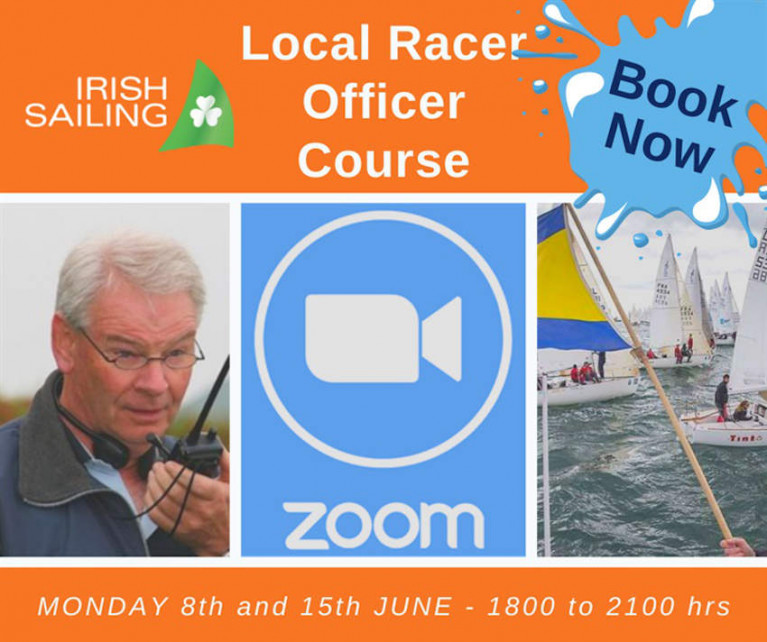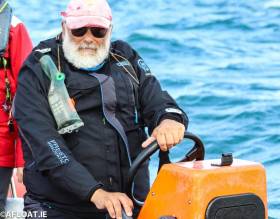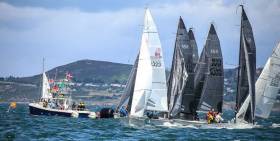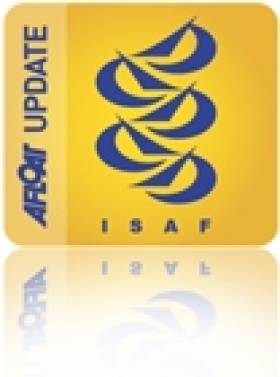Displaying items by tag: race officer
Irish Sailing’s Local Race Officer Course Goes Online
Irish Sailing president — and National Race Officer — David O’Brien will present an online Local Race Officer Course starting Monday evening 8 June.
The course runs on two nights, Monday 8 and Monday 15 June from 6pm to 9pm, and is open to anyone (aged 16 and over) interested in how racing and committee boats work and would like to know more about becoming a recognised race officer.
The course will be delivered by the Zoom platform and costs just €10. For booking details see HERE.
International Judge Offers Protest Committee 'Tip' for Race Officers
International Race Judge Gordon Davies has offered an '11th tip' following the publication of Mark Mansfield's Top Ten Tips for Race Officers article last week on Afloat.
Davies, who officiated at this month's Flying Fifteen World Championships on Dublin Bay, insists that a protest committee is appointed in advance of an event in order to liaise with the Protest Committee Chair to allow him/her to read the Sailing Instructions in good time. 'Too often as a judge, I arrive at an event without having the opportunity to read the SIs and find that some instructions are unworkable, or create opportunities for requests for redress', he told Afloat.
Mansfield put forward ten common-sense ideas to avoid race course frustration from a sailors' perspective here.
Davies has also weighed in on methods of shortening courses as suggested by Mansfield. The judge adds:
On shortening course when needed:
- in one design fleets, the 'W' flag procedure allows the race committee to give a finishing place to the tail-enders as soon as the first boat finishes. This saves a lot of time and avoids the dreaded mass DNF.
- in handicap racing, it is possible to write a sailing instruction so that times can be taken by a Race Committee vessel at a mark. This can be used to retrospectively shorten the course if the wind dies away later, or some other unexpected prevents the full course being sailed. A National Mark Layer should be able to record times in this way.
London 2012 Olympic Games Race Officer Jack Roy, who is DBSC Principal Race Officer and ISA Director of Racing, is organising an ISA Race Officer Level 1 Course which will be run over two evenings – Tuesday March 28th and Tuesday April 4th in the National Yacht Club from 7pm to 10pm.
The course is a basic introductory course and is the first step on the road to becoming a Local Race Officer with the ISA. Each course participant will receive a certificate and this is the first step on the ISA Race Officers Pathway programme. Having successfully completed the course participants will be permitted to use the ISA Passport system which is an online logbook that records progress through the 5 disciplines of race management.
Jack will include some material specific to DBSC race management procedures and requirements. We would like to encourage anybody interested in race management to attend the course. For those who already have some experience it is an opportunity to complete the first step of the Race Officer Pathway programme.
The cost of the course is €20. You can register and pay online via the following link on the ISA website here
If you require any further information please contact Sarah-Louise Rossiter, ISA, email [email protected], or Ann Kirwan, DBSC, email [email protected]
Race Officials Can Be 'Friends' But Not 'Fans', Say New ISAF Social Media Guidelines
#isaf – Race officials in charge of yacht races can be Facebook 'friends' with competitors but not 'fans' of their teams or organisations, that's the advice given in new guidelines issuedto race officers by the International Sailing Federation (ISAF). The new guidelines are downloadable below.
Race officials also must be aware that information they put on their profile during an event must not give competitors who are Facebook friends an advantage or access to information which others do not have.
With the increasing use of new communication tools on the web such as blogs, social networks, call and text message services, it is necessary for ISAF Race Officials to consider how their own use of such tools interacts with their role as an official, according to the new guidelines.
Restricting the use of social media is not designed to inhibit freedom of speech or rights to privacy, but it is inevitable that appointment as a race official means the official must limit their use of such tools in order to comply with the ir duties as an official.
ISAF's goal is to provide guidelines to help ra ce officials balance these concepts in order to avoid potentially embarrassing situations for the race official and for ISAF.
































































